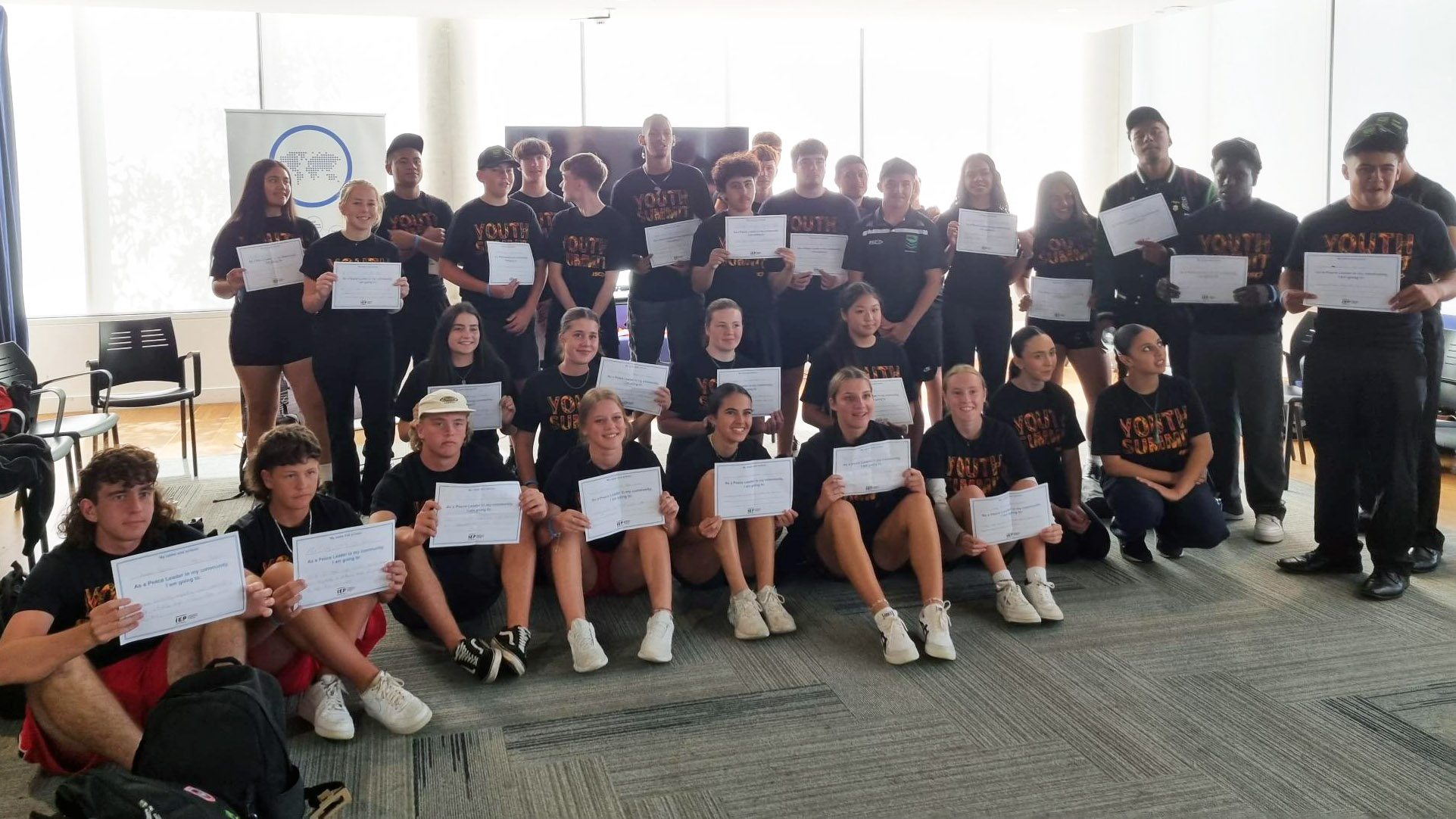The International Day of Sport for Development and Peace, established by the United Nations, is a recognition of the essential role sports play in advancing developmental goals and promoting peace worldwide. It celebrates sports as a universal language that transcends cultural, social, and geographical boundaries, uniting people in mutual respect and collective endeavour.
In reflection of the growing cultural and developmental impact that sport can have on leadership and peace, IEP recently facilitated a workshop at the National Rugby League ‘In League In Harmony’ youth summit held in Sydney, Australia.
In partnership with the NRL, IEP brought together 67 young people from 10 schools across the Greater Sydney Region for a peace-focused leadership training session. Held to coincide with the International Day for the Elimination of Racial Discrimination, the workshop aimed to inspire young leaders to advocate for peace and inclusivity in their schools and communities.
The workshop included interactive presentations and activities designed to reinforce participants’ understanding of concepts such as Positive Peace, empathy, and the importance of diversity and inclusivity.
“As a Peace Leader in my community, I am going to ensure everyone feels like they belong, that there is no discrimination, and everybody respects each other. I am going to communicate the importance of empathy when people go through challenging situations, and check in on my friends and family.”

IEP’s Pillars of Positive Peace offer a robust framework for understanding the dynamics of peaceful societies, and the connection with sport is multifaceted. Sports inherently embody many of the eight pillars, such as facilitating Well-Functioning Government through the promotion of fair play and adherence to rules, encouraging the Equitable Distribution of Resources by providing equal opportunities for participation, and promoting the Free Flow of Information through open communication and shared experiences.
Sports can also cultivate Good Relations with Neighbours by bringing together individuals from diverse backgrounds amongst a sense of community and shared identity. The Acceptance of the Rights of Others is also inherent in sportsmanship, which respects all players and their right to compete and enjoy the game. High Levels of Human Capital can be developed through sports, as they often require and build upon skills, teamwork, and personal development.
The connection between the Pillars of Positive Peace and sport is evident in the way sport can act as a catalyst for social cohesion and peaceful interaction. By engaging in sports activities, individuals can learn the values of cooperation, respect, and understanding, all of which are essential for the development of peaceful and inclusive societies. Sport not only provides a platform for physical activity, but can also serve as a vehicle for peacebuilding and the promotion of positive societal values.
To find out more about IEP’s peace training offerings, and opportunities to get involved, please visit economicsandpeace.org.